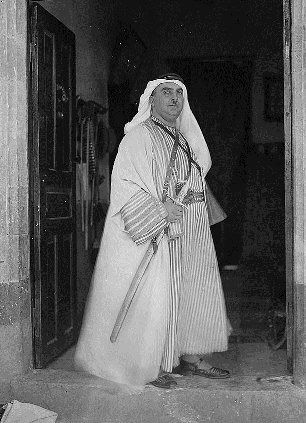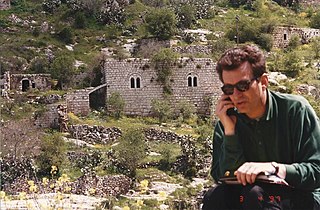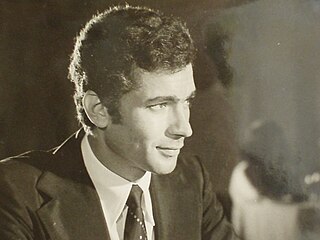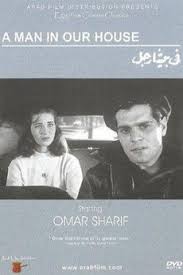
Youssef Chahine was an Egyptian film director. He was active in the Egyptian film industry from 1950 until his death. He directed twelve films that were listed in the Top 100 Egyptian films list. A winner of the Cannes 50th Anniversary Award, Chahine was credited with launching the career of actor Omar Sharif. A well-regarded director with critics, he was often present at film festivals during the earlier decades of his work. Chahine gained his largest international audience as one of the co-directors of 11'9"01 September 11 (2002).

Yousra is an Egyptian actress and singer. She is considered as a glamorous icon for the Middle East and is an influential voice in the region.
The War of the Camps, was a subconflict within the 1984–1990 phase of the Lebanese Civil War, in which the Palestinian refugee camps in Beirut were besieged by the Shia Amal militia.

Constantin Zurayk was a prominent and influential Syrian Arab intellectual who was one of the first to pioneer and express the importance of Arab nationalism. He stressed the urgent need to transform stagnant Arab society by means of rational thought and radical modification of the methods of thinking and acting. He developed some ideas, such as the "Arab mission" and "national philosophy", which were to become key concepts for Arab nationalist thinkers, and in more recent years was a strong proponent of an intellectual reformation of Arab society, emphasizing the need for rationalism and an ethical revolution.

‘’’Aref al-Aref’’’, variously spelled as ‘’’Arif el Arif’’’, ‘’’’Arif el-’Arif’’’, etc., was a Palestinian journalist, historian and politician. He served as mayor of East Jerusalem in the 1950s during the Jordanian annexation of the West Bank.

Saladin the Victorious, also known as Saladin and the Great Crusades, is a 1963 Egyptian epic film directed by Youssef Chahine. It was written by Yusuf Sibai, based on the novel by Naguib Mahfouz. It stars Ahmed Mazhar as Saladin, Salah Zulfikar as Issa El Awwam, Nadia Lutfi as Louisa de Lusignan, Omar El-Hariri, Mahmoud El-Meliguy, Leila Fawzi, Hamdi Gheiss, Ahmed Luxor, Hussein Riad, Laila Taher and Zaki Toleimat.
Middle Eastern cinema collectively refers to the film industries of West Asia and part of North Africa. By definition, it encompasses the film industries of Egypt, Iran, Bahrain, Iraq, Israel, Jordan, Kuwait, Lebanon, Palestine, Oman, Qatar, Saudi Arabia, Syria, United Arab Emirates, and Yemen. As such, the film industries of these countries are also part of the cinema of Asia, or in the case of Egypt, Africa.
Yusuf is a male name meaning "God increases". It is the Arabic equivalent of the Hebrew name Yosef and the English name Joseph. It is widely used in many parts of the world by Arabs of all Abrahamic religions, including Middle Eastern Jews, Arab Christians, and Muslims.

Benny Brunner is an Israeli-Dutch filmmaker, born in Bârlad, Romania and based in Amsterdam since 1986. He studied film at Tel Aviv University. Since the late 1980s, Brunner has written, directed and produced films about the history of the Israeli-Palestinian conflict including The Concrete Curtain, It Is No Dream, Al-Nakba and The Great Book Robbery, films about Jewish history like The Seventh Million, and films concerning the modern history of the Middle East. He describes himself as "a veteran leftist" and his political films take the side of the 'other'. Brunner has worked in the Middle East, Europe, South Africa, and the United States. In addition to winning a special commendation by the Prix Europa for A Philosopher for All Seasons in 1991, his films have been screened at the San Francisco Jewish Film Festival, the International Documentary Film Festival Amsterdam, the Jerusalem Film Festival, the San Diego Jewish Film Festival, and numerous international, human rights and Jewish film festivals.

Mahmoud Kabil is an Egyptian actor and political activist. He is also the UNICEF Goodwill Ambassador for the Middle East and North Africa. Kabil served as an officer in the Military of Egypt's Special Forces before becoming a promising actor in Egyptian cinema during the 1970s. Blacklisted in 1980, Kabil moved to the United States and took a 14-year hiatus from acting. He made a successful comeback upon his return to Egypt in 1993, and has since starred in more than 50 films and TV series on his way to becoming one of Egypt's most popular actors. After years of involvement with the United Nations, Kabil was named a UNICEF Goodwill Ambassador in November 2003.

Al-Nakba: The Palestinian Catastrophe 1948 is a documentary film of Benny Brunner and Alexandra Jansse. It follows the events that surround the 1948 Palestinian exodus. It was filmed in 1996, is 58 minutes long and is in English. Based on the book The Birth of the Palestinian Refugee Problem, 1947–1949 by Benny Morris, it is the first documentary film to examine the displacement of 750,000 Palestinians during the birth of the state of Israel. The film shifts between interviews with Palestinian refugees and the reactions of Irgun and Haganah soldiers who witnessed and participated in the events of 1948.
Nur ad-Din Masalha commonly known in English as Nur Masalha is a Palestinian writer, historian, and academic.
Shahin or Shaheen, is a male or female given name which is the generic term for hawk or falcon, although in specific, the peregrine falcon. The name Shaheen/Shahin is a composite of two nouns, "shah" - king and "īn" - which is a sign of proportion, freedom,or "royal", literally "king of the birds"

In 1948 more than 700,000 Palestinian Arabs – about half of prewar Palestine's Arab population – were expelled or fled from their homes by Zionist militias, during the 1948 Palestine war. The exodus was a central component of the fracturing, dispossession and displacement of Palestinian society, known as the Nakba, in which between 400 and 600 Palestinian villages were destroyed, village wells were poisoned in a biological warfare programme to prevent Palestinians returning, and other sites subject to Hebraization of Palestinian place names, and also refers to the wider period of war itself and the subsequent oppression up to the present day.

Nakba Day is the day of commemoration for the Nakba, also known as the Palestinian Catastrophe, which comprised the destruction of Palestinian society and homeland in 1948, and the permanent displacement of a majority of the Palestinian people. It is generally commemorated on 15 May, the Gregorian calendar date of the Israeli Declaration of Independence in 1948. For Palestinians, it is an annual day of commemoration of the displacement that preceded and followed Israel's establishment.

There Is a Man in Our House or A Man in Our House, is a 1961 Egyptian drama, history, romance film directed by Henry Barakat, an Egyptian film director of Lebanese origin. The film is based on a novel by an Egyptian writer, Ihsan Abdel Quddous, and stars Omar Sharif and Zubaida Tharwat. There Is a Man in Our House is one of the Top 100 Egyptian films.

The Nakba, also known as the Palestinian Catastrophe, was the destruction of Palestinian society and homeland in 1948, and the permanent displacement of a majority of the Palestinian Arabs. The term is used to describe both the events of 1948 and the ongoing occupation of the Palestinians in the Palestinian territories, as well as their persecution and displacement in the Palestinian territories and in Palestinian refugee camps throughout the region.
Refqa Abu-Remaileh is a university teacher and author with a focus on Modern Arabic literature and film studies. Since 2020, she is associate professor in the department for Semitic and Arabic Studies at the Free University of Berlin, Germany. She is mainly known for her publications on the literature and films created by Palestinian people who often live as refugees and exiles, both in the Middle East and the world-wide Palestinian diaspora.
"Ongoing Nakba" is a term used to describe the still unfolding Palestinian "Nakba" or "catastrophe" in the wake of the 1948 Arab-Israeli War and concurrent expulsion and flight of Palestinians. The phrase emerged in the late 1990s and its first public usage is widely credited to Hanan Ashrawi, who referred to it in a speech at the 2001 World Conference against Racism. The term was later adopted by scholars such as Joseph Massad and Elias Khoury. As an intellectual framework, the "ongoing Nakba" narrative reflects the conceptualisation of the Palestinian experience not as a series of isolated events, but as "a continuous experience of violence and dispossession", or as other have termed it, the "recurring loss" of the Palestinian people.










